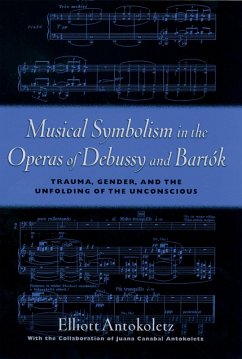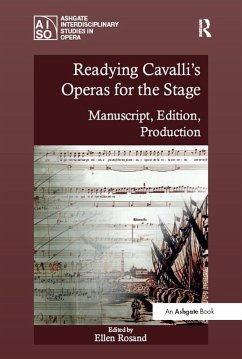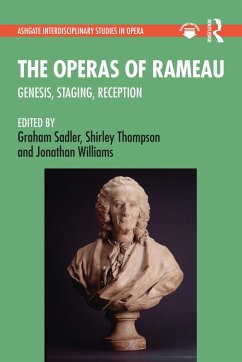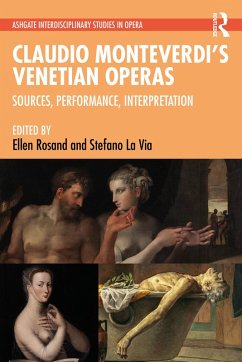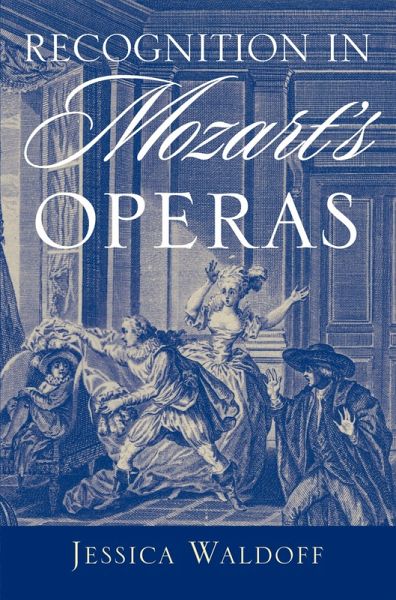
Recognition in Mozart's Operas (eBook, ePUB)
Versandkostenfrei!
Sofort per Download lieferbar
13,95 €
inkl. MwSt.
Weitere Ausgaben:

PAYBACK Punkte
7 °P sammeln!
Since its beginnings, opera has depended on recognition as a central aspect of both plot and theme. Though a standard feature of opera, recognition--a moment of new awareness that brings about a crucial reversal in the action--has been largely neglected in opera studies. In Recognition in Mozart's Operas, musicologist Jessica Waldoff draws on a broad base of critical thought on recognition from Aristotle to Terence Cave to explore the essential role it plays in Mozart's operas. The result is a fresh approach to the familiar question of opera as drama and a persuasive new reading of Mozart's op...
Since its beginnings, opera has depended on recognition as a central aspect of both plot and theme. Though a standard feature of opera, recognition--a moment of new awareness that brings about a crucial reversal in the action--has been largely neglected in opera studies. In Recognition in Mozart's Operas, musicologist Jessica Waldoff draws on a broad base of critical thought on recognition from Aristotle to Terence Cave to explore the essential role it plays in Mozart's operas. The result is a fresh approach to the familiar question of opera as drama and a persuasive new reading of Mozart's operas.
Dieser Download kann aus rechtlichen Gründen nur mit Rechnungsadresse in A, B, BG, CY, CZ, D, DK, EW, E, FIN, F, GR, HR, H, IRL, I, LT, L, LR, M, NL, PL, P, R, S, SLO, SK ausgeliefert werden.




